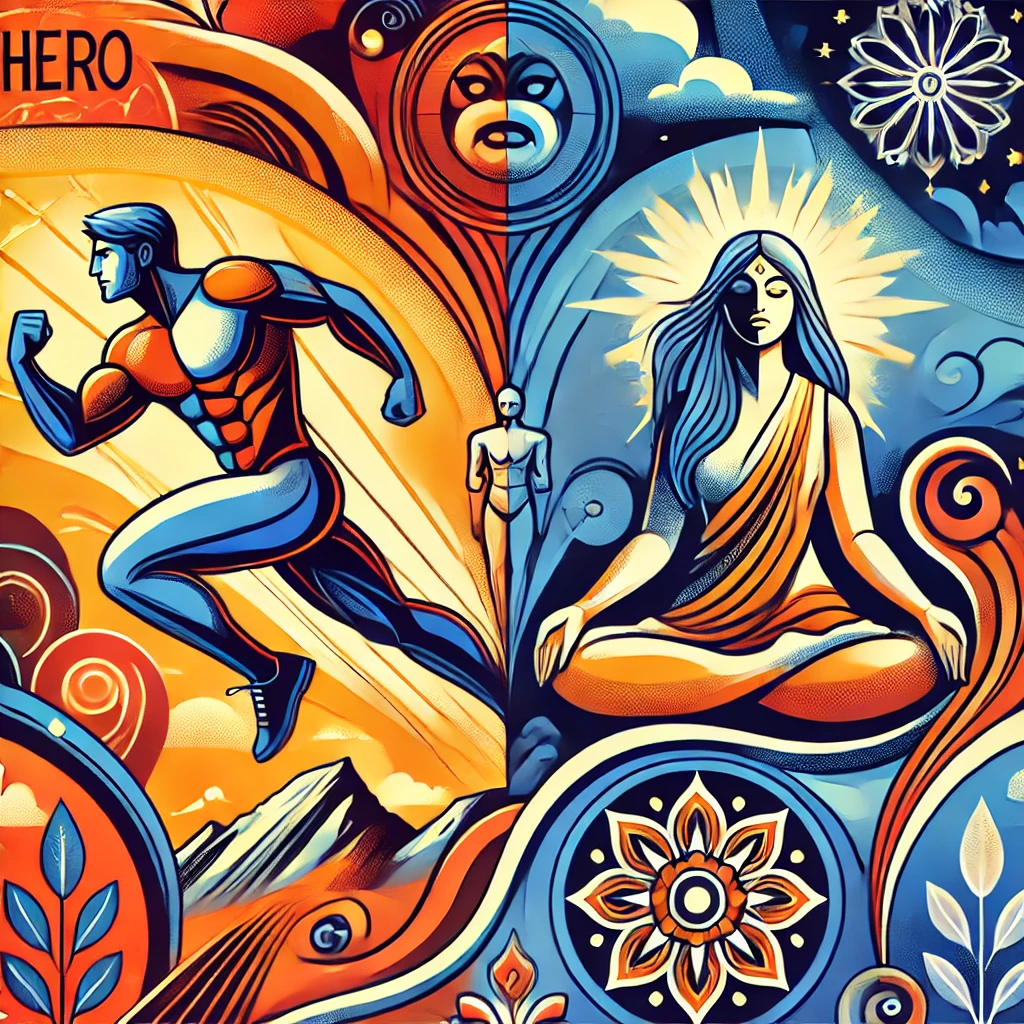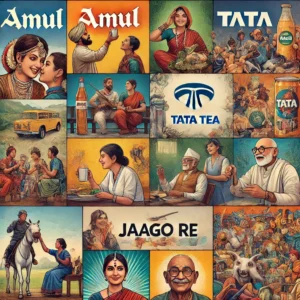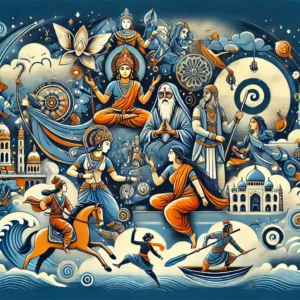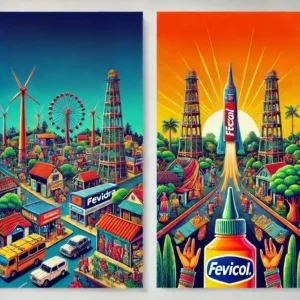
Learn The Art of Storytelling in Branding and Marketing: Capturing Hearts and Minds
Storytelling is as old as humanity itself.
From the fables of the Panchatantra to the epics of the Mahabharata, stories have been the bedrock of culture, identity, and legacy. In marketing, storytelling is not merely an accessory; it is the foundation upon which enduring brands are built. For founders of startups navigating the complexities of modern markets, mastering storytelling is no longer optional—it is essential.
Renowned thinkers like Joseph Campbell and Rene Girard have explored the universal appeal of stories, while Robert Cialdini has outlined how persuasion works at a psychological level. Applying these insights to branding transforms marketing into an art form, one that doesn’t just sell but resonates deeply.
Why Storytelling Matters in Branding and Marketing
Joseph Campbell, in his seminal work The Hero with a Thousand Faces, described the monomyth or the “hero’s journey”—a universal narrative structure found in myths across cultures. This structure maps perfectly onto marketing. A brand, like a hero, embarks on a journey to solve problems, face challenges, and emerge triumphant. By weaving this narrative, brands connect with audiences on an emotional level, building loyalty and trust.
Indian brands like Amul and Tata Tea have mastered the art of storytelling. Amul’s “utterly butterly delicious” campaigns use wit and topicality to engage audiences, while Tata Tea’s Jaago Re initiative tells stories of social awakening. These narratives go beyond products, embedding the brands into the cultural consciousness.

Lessons from Iconic Thinkers on Storytelling
1. Carl Jung: Archetypes in Branding
Jung’s concept of archetypes offers a powerful lens for storytelling. Archetypes like the “Innocent,” “Explorer,” or “Ruler” resonate universally, shaping how audiences perceive brands.
For example: Nike embodies the “Hero,” inspiring individuals to conquer challenges. Dove represents the “Caregiver,” advocating for self-love and acceptance.
Indian startups like Paper Boat have embraced the “Innocent” archetype, telling nostalgic stories of childhood memories. Their campaigns evoke simplicity and authenticity, making the brand relatable and memorable.

2. Kurt Vonnegut: Story Shapes
Vonnegut proposed that all stories have distinct shapes—rise-fall, fall-rise, or steady progress. Applying these shapes in branding can make campaigns more engaging.
For instance: The rise-fall-rise shape is evident in Zomato’s humorous content that starts with a problem (hunger), introduces challenges (delayed orders), and resolves it with humor and efficiency.
3. Rene Girard: Mimetic Desire
Girard’s theory of mimetic desire posits that humans imitate the desires of others. In marketing, this principle manifests in aspirational branding.
For example: CRED’s campaigns portray exclusivity and privilege, making users aspire to be part of the elite club.
The Indian Context: Storytelling for Emerging Markets
India, with its rich storytelling heritage, offers fertile ground for brands to leverage narratives. From mythological references to contemporary storytelling, successful Indian brands often draw on cultural touchpoints.

Case Study: Mahindra Rise
Mahindra’s Rise campaign exemplifies storytelling rooted in purpose. By highlighting stories of innovation, sustainability, and empowerment, the campaign creates a vision of progress and resilience. This aligns with Mahindra’s brand ethos, reinforcing its identity as a forward-thinking company.
Case Study: Fevicol
Fevicol’s advertising has long relied on humor and hyperbole to tell stories. The “Fevicol ka jod” campaigns, often featuring quirky anecdotes, are instantly relatable and culturally resonant, making Fevicol a household name.

Tenets of Effective Storytelling in Branding and Marketing
- Empathy First – Robert Cialdini’s principle of “liking” suggests that people are more likely to engage with brands they feel understand them. Great storytelling begins with empathy—understanding your audience’s needs, aspirations, and pain points.
- Relatability – The Panchatantra’s moral tales are timeless because they are rooted in universal truths. Similarly, brands must craft stories that are universally relatable yet locally relevant.
- Conflict and Resolution – Good stories thrive on conflict. The Mahabharata, for instance, is a tale of dharma and adharma, filled with challenges and moral dilemmas. Brands like Tanishq use similar narratives—portraying moments of human conflict (like the dilemmas of modern families) and resolving them with emotional clarity.
- Authenticity – In a digital age dominated by skepticism, authenticity is key. Startups like Chumbak succeed because their stories—rooted in quirky, Indian-inspired designs—feel genuine and relatable.
The Role of a Creative Content Agency in Storytelling
While storytelling may seem intuitive, crafting narratives that drive business outcomes requires expertise. This is where a creative content agency becomes indispensable. Agencies bring the following to the table:
- Strategic Alignment: Ensuring your stories align with your brand vision and business goals.
- Audience Insights: Leveraging data to craft narratives that resonate with your target demographic.
- Multichannel Expertise: Creating cohesive stories across social media, websites, and ad campaigns.
A digital marketing agency specializing in storytelling can help translate your brand’s unique journey into compelling narratives that capture hearts and minds.
How Startups Can Embrace Storytelling
- Identify Your Brand’s Archetype – Determine the core personality of your brand. Are you the “Hero” like Nike, or the “Creator” like Canva? This archetype will guide your narratives.
- Leverage Cultural Context – Draw from India’s rich cultural heritage. Use local idioms, festivals, and traditions to make your stories relatable and impactful.
- Experiment with Formats – Stories don’t always have to be long. Short-form video content, interactive Instagram polls, or even memes can tell powerful stories in today’s attention-deficit landscape.
- Invest in Professional Expertise – Partnering with a brand building agency ensures your storytelling is not just creative but strategic. They can help refine your narratives, ensuring they drive engagement and conversions.
Closing Thoughts
The Enduring Power of Stories Stories are not just tools for communication; they are vehicles for transformation. Whether it’s Apple’s innovation-driven narratives or Tata’s legacy of trust, iconic brands thrive because they tell stories that inspire action. In India’s dynamic market, storytelling is more than an advantage—it is a necessity. For founders navigating this space, the challenge is clear: How will your brand’s story stand out? With the right blend of creativity, strategy, and authenticity, your story can not only capture hearts but also define your legacy.

